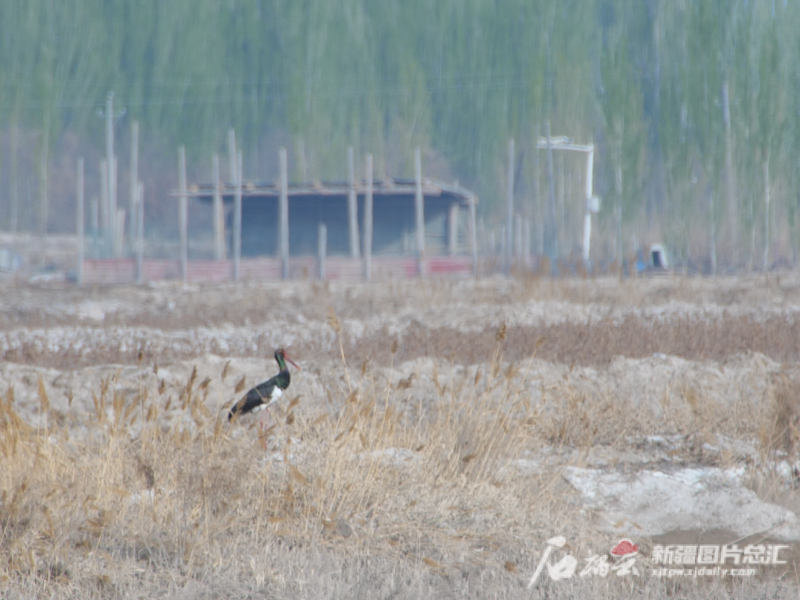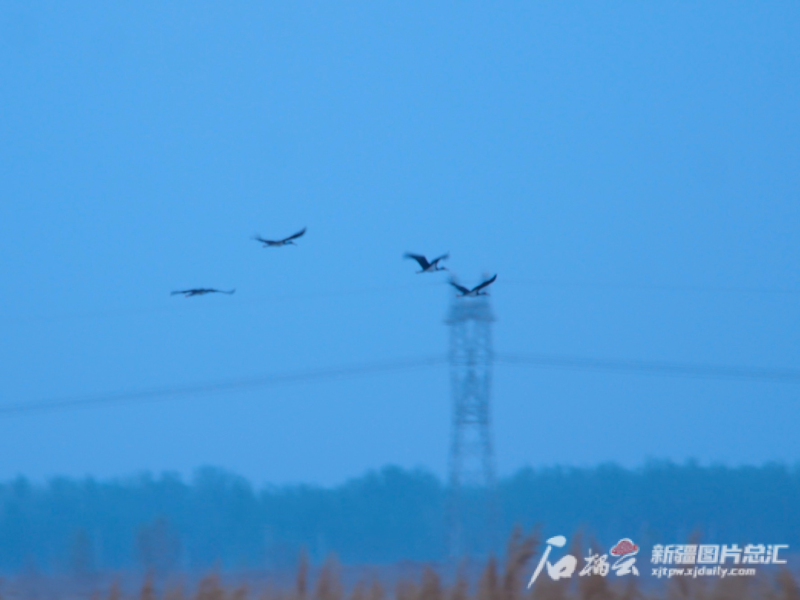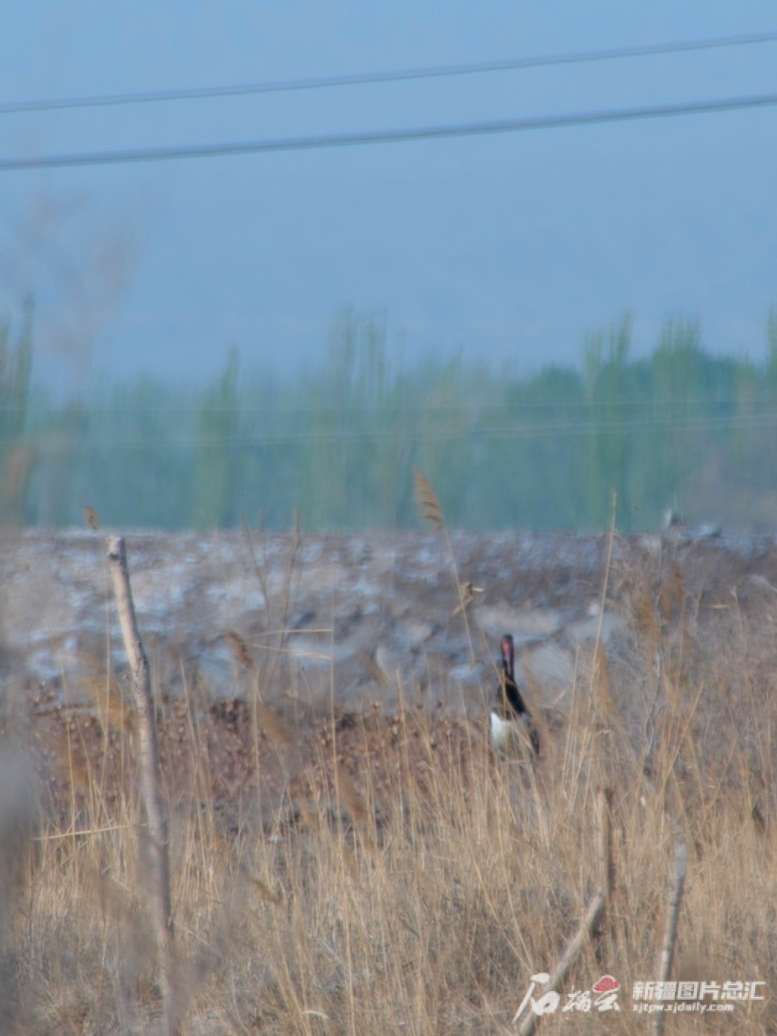
Photo shows a black stork stands elegantly in the grass. (Photo by Bahtiyar Umar)
At about 12:00 on April 12, 2022, a black stork, a treasure bird species as rare as panda, one of the first-class protected animals in China, was seen around the No. 58 and No. 61 electricity pylons of the power transmission line in Akto County, Kizilsu Kirghiz Autonomous Prefecture, northwest China’s Xinjiang. At that time, Bahtiya Umar, a staff member of the State Grid Kizilsu Power Supply Company, captured the precious image through his lens while on duty.

Photo shows four adult black storks fly in the air. (photo by Bahtiyar Umar)
It was about 20℃ in Akto County, adult black storks sometimes stand in the wind, sometimes fly in the air, showing a beautiful scene.
It is learned that black stork is a kind of large poultry and is elegant and agile. Adult black stork is 1 to 1.2 meters long, with long and stubby bill and black feathers covering almost whole body except for pure white chest. Their feathers can change into different colors under light from different angles when they are flying.
“These black storks are wary and alert with sounds, and would fly away as along as people approach.” said Bahtiyar Umar. “We only photoed 7 of them. Others just flew away.”
After connecting with Xinjiang Institute of Ecology and Geography of Chinese Academy of Sciences, an initial speculation suggests that these black storks stay temporarily during the migration, and it is possible that they may fall in love with the open wetland under the power corridor. If the speculation gets confirmation, they are most likely to nest here.
As an important line of power gird, the power transmission line supplies electricity to the residents in Akto County and Yumai Town. According to the State Grid Kizilsu Power Supply Company, it is rare that black storks are seen around power lines.
Next, the company plans to replace the anti-bird thorns on the electricity pylons with anti-bird blocking boxes that have no influence on the activities of birds, and install insulator shields to prevent birds to stay on the upper section of the tower which is above the insulator and prevent unstable power supply in the county caused by bird droppings. At the same time, route inspection will be strengthened to record the show-up frequency and activity location of birds, and work with bird experts to analyze whether black storks have a tendency to nest, and then consider whether to set up artificial nests.

Photo shows an alert black stork ready to fly at any time. (Photo by Bahtiyar Umar)









